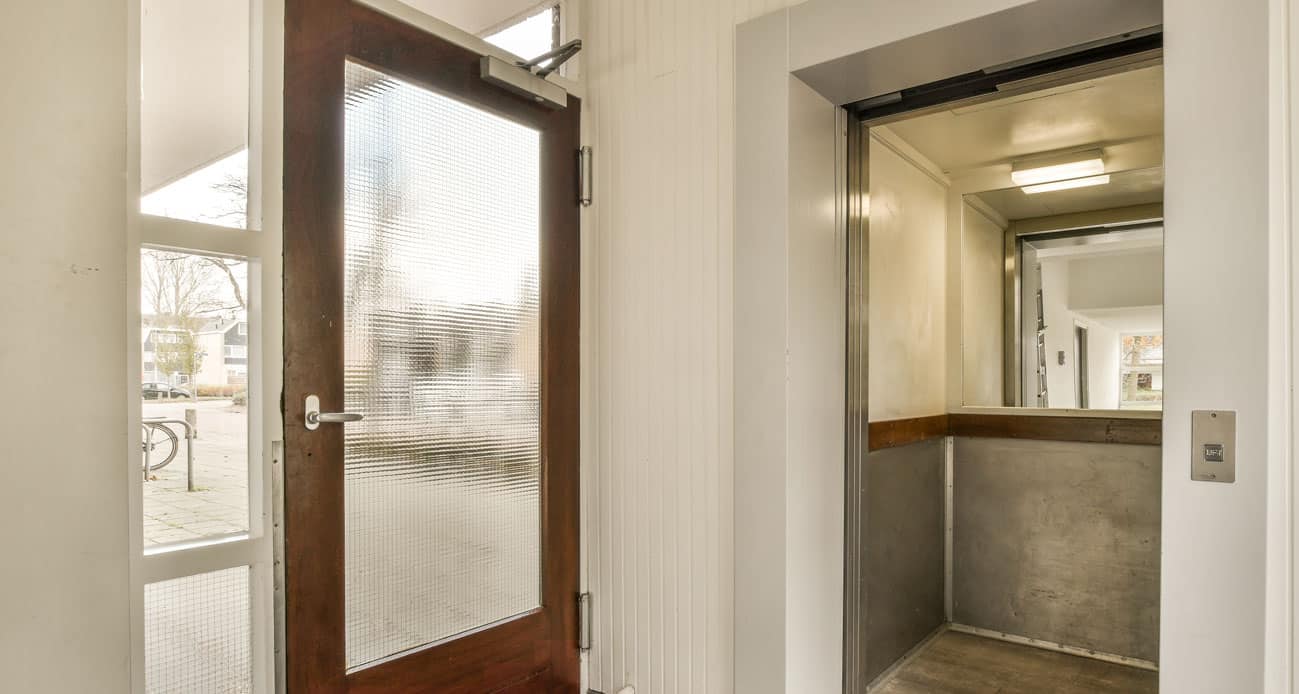
When it comes to door hardware, the details matter. Every hinge, lock, and knob plays a role in the functionality and aesthetic appeal of a door.
What’s a commonly overlooked but essential component? The door closer. And in the realm of door closers, the debate between pneumatic vs hydraulic door closer is one that professionals and homeowners alike often grapple with.
Whether you’re looking to install a door closer for a commercial setting or for your residential garage or back door, understanding the difference between the pneumatic and hydraulic door closers can help you make an informed decision.
At Homebuilders Hardware, we pride ourselves on offering a complete range of hydraulic door closers.
Let’s delve deep into their features, benefits, and ideal scenarios for use.
Pneumatic Door Closers
Pneumatic door closers are tubular devices that function using air pressure (instead of hydraulic fluid). As the door is opened, air is compressed into a tubular chamber, and as the door is released, this air is slowly let out, causing the door to close at a controlled rate.
Pros
- Cost-Effective: Generally, pneumatic door closers are more affordable than their hydraulic counterparts.
- Simplicity: Their mechanism is simple, making them easier to maintain and repair.
- Adjustability: Most come with adjustable settings, allowing you to control the closing speed.
Cons
- Environmental Effects: They can be affected by temperature fluctuations, causing inconsistency in performance during extreme conditions.
- Shorter Lifespan: Pneumatic systems tend to wear out faster than hydraulic ones.
- Weaker Force: With simple air pressure and lighter materials, pneumatic closers offer a weaker closing force than hydraulic closers. That may be fine for certain situations (see blow).
Where to Use a Pneumatic Door Closer
You’ll most often see pneumatic door closers on lightweight, out-swinging doors such as storm doors and screen doors.
These light doors help keep out insects, weather, and intruders. But due to their lightweight, they need only a small amount of force to close them. Perfect for a pneumatic door closer. A strong hydraulic closer may damage such lightweight screen doors.
Hydraulic Door Closers
Hydraulic door closers use a liquid (usually oil) to control the rate at which a door closes. The fluid flows through internal chambers to create resistance and slow down the door.
In addition, hydraulic door closers such as the LH5016 come with multiple adjustable functions that let you control the opening and closing action of your door. Here’s a list of functions you would find on a fully adjustable “Complete Control” hydraulic door closer like the LH5016:
- Opening & Closing Force. Also referred to as “Spring Size,” this is the most important feature of a hydraulic door closer. Adjustable closers will let you customize the pounds of pressure the closer pushes on the door to close it, ranging from 2 lbs to 14 lbs of force.
WHY YOU NEED IT: Breezy doorways need more force to close the door, while weaker users such as children and the elderly will need lower force so that opening the door is not too difficult. A fully adjustable hydraulic door closer lets you customize or change the force to suit your needs precisely. Otherwise, you get a door closer with one fixed “Sprinze Size.”
- Backcheck. This feature (for models that come with it) adds a cushioning effect so that your door does not slam into and damage the wall it opens towards.
WHY YOU NEED IT: Forceful openings by careless customers (drunken bargoers on their way out), rowdy teenagers (schools), or other such scenarios where protecting the receiving wall is important.
- Delayed Action. This feature (for models that come with it) adds an adjustable delay to the start of the closing movement. Instead of beginning to close immediately upon reaching the fully opened position, Delayed Action adds a few seconds of delay before the door will start closing again.
WHY YOU NEED IT: Delayed Action is important for slower customers (such as the elderly, or perhaps you have super relaxed hotel guests who mozy their way out of the spa at a snail’s pace) or if you want to allow larger groups of foot traffic (think one family at a time) to pass through the doorway without the door closing on them right away.
- Closing Speed. Also called the “Sweep Speed,” this feature comes with almost all brands and sizes of door closers. It determines the speed that the door closes, up until the final moments before it fully closes. That last bit of movement is controlled by the Latching Speed.
WHY YOU NEED IT: After the amount of force your closer uses, the next most important feature people notice will be the speed that the door closes. Faster closing is better when you want to reduce temperature leaks via the door, such as in winter or summer. Slower closing is better when you want your door to give more time to people coming in and out of the doorway.
NOTE: changing the speed does not change the force that the closer pushes with. If your users complain of a door that’s too hard to open, that’s a force issue (see above) not a speed issue.
- Latching Speed. This feature is actually a security feature. The Latching Speed adjustment allows you to control how fast or slow the door closes during the final moments before it is back in the closed position.
WHY YOU NEED IT: If the latching speed is too slow, the door may not close fully and the latch will not catch, leaving your door ajar and open to unwanted intruders.
IMPORTANT NOTE. Not all door closers come with this many adjustable functions. Many brands only offer the speed and latching adjustments. But now you know what to look for!
Pros
- Control: Hydraulic door closers offer maximum control for the door opening and closing experience, compared to simple pneumatic closers
- Strength: They can close very light doors such as a small pool gate (LH302), standard-sized doors such as a backdoor to the yard (LH303 standard force or LH534 for more force), or even large and heavyweight commercial doors (see LH8016 for our toughest, cast iron door closer)
- Longevity: They generally last longer than pneumatic systems, offering more value in the long run. The Lawrence Hardware models we sell come with 10-30 year warranties.
- Variety: They come in many designs and finishes, suitable for both commercial and residential applications.
Cons
- Price: They can be pricier initially, but remember, they often provide better longevity.
- Maintenance: If they do require maintenance, it can be more complicated due to the hydraulic mechanism’s complexity compared to a simple pneumatic closer.
Which is Best for Your Needs?
When considering a door closer pneumatic versus hydraulic, the decision ultimately boils down to your specific needs and environment. If you’re looking for a cost-effective solution for a sheltered back door or garage, a pneumatic door closer might be ideal.
However, for more frequently used entrances or environments where a customized experience is important for family or customers, and where reliable and secure latching is critical to security, you might opt for a hydraulic door closer instead.
For those in commercial settings, the consistent performance and extended lifespan of hydraulic systems are often preferred. Plus, if you run into any issues, our guide on how to adjust and troubleshoot commercial door closers is a valuable resource.
If you need a hydraulic door closer, Homebuilders Hardware offers a complete range from Extra Heavy Duty down to Light Duty and everything in between. Hop on over to our door closers category.
Final Thoughts
In the battle of pneumatic vs hydraulic door closers, there isn’t a one-size-fits-all answer. It’s about understanding the nuances of each and aligning them with your needs. At Homebuilders Hardware, our experts are always available to guide you through this decision. Whichever you choose, you’re sure to get a product of unparalleled quality and performance. Happy building!







